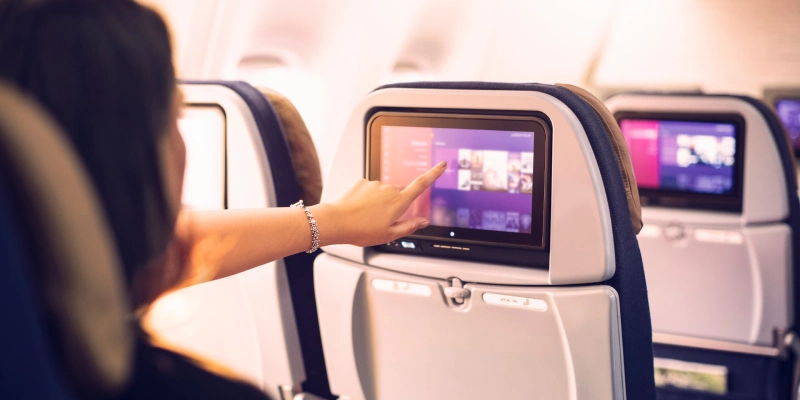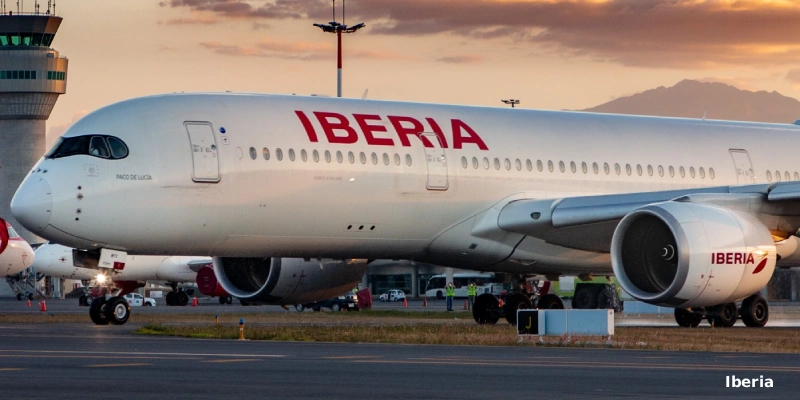Virgin Atlantic has shared headline results from Flight100, the first transatlantic flight on 100% Sustainable Aviation Fuel (SAF), proving not only that the SAF used for the flight is safe to use with existing infrastructure and delivers material reductions in CO2, but can also improve local air quality, contribute to a reduction on persistent contrail formation and reduce fuel use.
Flight100, which flew from London Heathrow to New York JFK on 28 November 2023, was the world’s first commercial aircraft operating across the Atlantic on 100% SAF, on a Boeing 787, using Rolls-Royce Trent 1000 engines. The flight did not require any engine, airframe or fuel infrastructure changes and operated on safety standards equivalent to every other commercial flight.
→ Singapore to require departing flights to use sustainable fuel from 2026
The flight followed more than a year of radical collaboration by a Virgin Atlantic led consortium including Boeing, Rolls-Royce, Imperial College London, University of Sheffield, ICF and Rocky Mountain Institute, was part funded by Department for Transport and approved by the UK’s Civil Aviation Authority (CAA) and other regulators including the US Federal Aviation Authority (FAA).
The consortium published headline results from the flight including:
- A full lifecycle analysis – showing a saving of 95 tonnes of CO2, or 64% of the emissions produced from a standard flight from London Heathrow to New York JFK. That’s the equivalent of 54 cars off road for a year, or the energy consumption of 33 UK homes
- Additional benefits of SAF beyond carbon reductions – with a 40% reduction in non-CO2 particulate emissions. This suggests the use of SAF could have a material impact on improving local air quality at airports and reducing the formation of persistent contrails
- An improved overall fuel burn efficiency of SAF – Flight100 SAF produced 1% more energy compared to the same mass of fossil fuel. This efficiency means a reduction of the fuel used in flight which will bring further environmental benefits.
- Operational efficiencies to reduce fuel burn – the CO2 savings achieved through efficiency initiatives including direct routing and reduced taxi time resulted in 2.2 tonnes of jet fuel saving, or 4% of overall fuel burn, which if applied to every Virgin Atlantic flight for a year would be enough fuel saved to fill 24 Olympic sized swimming pools
- Verification of contrail forecasting models which, through continued work led by RMI’s Contrail Impact Task Force, could lead to operational measures that reduce contrail formation and climate impact
“Building on the success of Flight100, industry must continue to radically collaborate for aviation to use SAF on all flights globally”, the consortium said.
Following the release of the headline results, a consortium led technical deep dive will take place on 3 June 2024. This is a further step to ensure open-source information sharing – a fundamental element of the project.
Virgin Atlantic is committed to finding more sustainable ways to fly, taking action across every part of the journey. Already operating one of the youngest and most fuel and carbon efficient fleets in the sky, Flight100 builds on the airline’s 15-year track record for leading on the development of SAF at scale.
“Flight100 was more than a year in the making, demonstrating that together we can achieve more than we can alone. Virgin Atlantic is committed to finding new solutions, leading efforts to decarbonise our industry and to share any learnings or innovations. This approach underpins Flight100″, Shai Weiss, Chief Executive Officer, Virgin Atlantic said.
Related Topics
LATAM Suspends Lima-Havana Flights Due to Fuel Supply Crisis in Cuba
LATAM Recognized for Third Time by APEX as Airline with “Best Inflight Entertainment in South America”
Iberia to Offer Record Capacity to Latin America This Summer: 3.35 Million Seats and Up to 366 Weekly Flights
LATAM Resumes Flights Between Bogota and Caracas Starting February 23

Plataforma Informativa de Aviación Comercial con 13 años de trayectoria.




